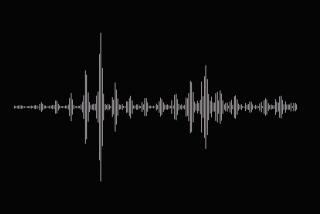Mental Health and Heart Disease : Attitude Plays Pivotal Role in Patient’s Survival Chances
- Share via
To a team at UCLA, the research exercise promised to be an uncomplicated opportunity--almost a rote exercise--to confirm something heart specialists have long presumed to be true.
The premise was that, if you train members of the family of a victim of high-risk heart disease in cardiopulmonary resuscitation, the patient--simply knowing that those around him are trained to respond quickly if he suffers a sudden heart attack--will reduce his anxiety and fear.
It seemed logical enough, recalled psychologist Shelley Taylor, one of the members of the study team. Logical and simple, that is, until the research began.
And what happened, Taylor and Kathleen Dracup (a professor of nursing and another of the researchers) agreed, is an important lesson in the degree to which mental health aspects of heart disease can play a pivotal role in whether patients live or die.
It is a field in which structured research has only recently begun. And so far, comparatively few hospitals--perhaps a half-dozen in the Los Angeles area, for instance--give high priority to therapy for the psychosocial aspects of heart cases.
But to a growing number of experts, dealing with the psychiatric ramifications of heart disease is acquiring an urgency it has never had before.
While there is an emotional burden imposed by any serious medical emergency, experts generally agree mental health plays a larger role in heart disease than in other major physiological ailments.
Researchers have recognized for several years, for instance, that stress and anxiety triggers the release in the bloodstream of catecholamines, amino acid byproducts that directly influence the onset of a heart seizure. And at Cedars-Sinai Medical Center here, researchers found in 1984 that, for reasons still not understood, patients undergoing open heart surgery (but not other types of major surgery) often experience a quantifiable drop in their intelligence quotients lasting as long as six weeks.
Theories to explain the phenomenon include the suggestion that connection to the heart-lung machine that maintains circulation while the heart is stopped may introduce tiny chemical disturbances in the brain and the idea that heart surgery may interfere with amino acids in the body.
The IQ deficit could explain why heart patients may seem as if they are not themselves. They may resort to immature emotional outbursts in which they vent rage at their spouses, thus worsening their underlying emotional stability. The deterioration in emotion, in turn, can chemically increase the likelihood of another potentially fatal heart seizure episode.
Hypothesis Tested
Taylor, Dracup and two other UCLA researchers tested their hypothesis about training relatives of heart disease victims in CPR on a total of 65 families. The subjects were divided into three groups--one where family members received CPR training, another where they were given instruction in heart disease risk factors but were not taught CPR and a third in which they got no instruction of any kind.
When the survey was completed, the team discovered that, in the group where family members were trained in CPR, the levels of fear and anxiety experienced by the patients had increased . It turned out, the researchers reported in an article published this month in Archives of Internal Medicine, a leading journal, that the CPR training forced the patients to admit to themselves that they were at high risk of sudden death, eliminating a key coping mechanism--denial that they could actually die suddenly--that becomes a part of the life style of people in such situations.
Furthermore, when the family members who knew CPR left the patients--to go the grocery store, for instance--the victims underwent serious increases in fear that they could succumb in that brief time they were left alone.
Feelings of Bitterness
For some others, there was a feeling of bitterness that family members had acquired an even greater direct role in whether the patients survived. In this respect, the CPR training issue may have exacerbated the extent to which the aftermath of a severe heart attack or open heart surgery stands the social order of many families on its ear, forcing into the open, at the worst possible time, latent and hidden resentments.
“I think I was the most surprised because I was the psychologist,” Taylor said. “I was the one who said that this (CPR training) will give them (patients and families) an (ability to control their destinies) so that when there is a threat to the patients’ lives, they can do something about it.
“Lo and behold, this intervention did the opposite. We were very upset.”
UCLA didn’t give up on training family members in CPR, Taylor said, because there is an obvious usefulness to such training if the unexpected psychological consequences can be overcome. By changing the way the CPR information was presented, Taylor said, and forcing patients and their families to face the emotional ramifications of CPR, the UCLA team may have overcome the problems the research unwittingly discovered.
Counseling Segment Added
Taylor said a counseling segment was added to the training--in which patients and their families were encouraged to anticipate the development of anxiety and depression after CPR training, and to discuss in advance the kinds of situations that could lead to a family member performing CPR. Family members were encouraged to remember that, by following the procedures in which they were trained, they would be giving the patients the greatest available chance of survival.
“This relatively simple intervention virtually eliminates the negative effects of the first study,” Taylor said.
Subsequently, with the CPR training program changed, a female patient went into cardiac arrest just three days after her husband had been trained. With the instruction still fresh in his mind, the husband immediately began CPR and his wife survived, Taylor said.
But nearby, at Cedars-Sinai Medical Center, doctors say that while they have offered CPR training to the families of open heart surgery patients for some time, family members rarely sign up for it.
Emotionally overwhelmed by the often abrupt change in their lives precipitated by an unexpected heart disease episode, patients and their families are simply unable to absorb both the technique of CPR or what learning it symbolizes for them, said Dr. Richard Gray, director of the coronary care unit at Cedars. Gray has assisted in the treatment of more than 6,000 heart surgery patients.
Emotional Components
According to Dr. Meyer Friedman of San Francisco’s Mount Zion Hospital, heart patients with so-called Type-A personality--characterized by hard-driving, competitive and obsessive personality traits--may be particularly at risk because of their emotional makeup.
“Unfortunately, this aspect of heart disease is lamentably neglected,” Friedman said in a telephone interview. Friedman believes that with counseling techniques, specifically behavior modification, “you can get rid of easily induced impatience and hostility, which is what we know prematurely brings on the onset of coronary disease.
“I really believe that, in five years, if a cardiologist does not have his patient exposed to Type-A modification, he could be accused of malpractice.”
Slowly--too slowly, say Cedars-Sinai’s Gray and UCLA’s Dracup--hospitals across the country are beginning to realize the importance of the emotional components of heart disease. The program at Cedars is typical of such efforts. There--as at UCLA and a handful of other local hospitals--a multidisciplinary team has been assembled to deal with heart patients and their families.
The team’s approach, Gray said, takes into consideration the reality that heart patients themselves undergo a temporary reduction in their intellectual capacity, and that the stress of the situation compromises the abilities of family members to concentrate and absorb new information, too. The team includes nurses who fill a liaison function starting before surgery so patients and their families understand what is going to happen to them and then, after the operation, what did occur and how they should cope with the results.
The team also includes chaplains of the primary denominations--who make rounds just like physician heart specialists--a psychiatrist, a psychologist and a social worker.
Building on a nationally known support group called Heart Wives, Cedars organized Heart Families, which seeks to involve all members of a patient’s family in the many aspects of the medical and psychological recovery--including the vital area of behavior and stress modification that can often be the key to whether a patient actually survives more than just a few months. Key to the approach is something absurdly simple: Team members must endlessly repeat the same messages to be sure the information is absorbed in a family unit emotionally and organically functioning at a temporarily impaired intellectual level.
The need for this is not lost on Gray, whose own father underwent bypass surgery four years ago. Even though two of the elder Gray’s children are physicians, the family found itself just as terrified and fearful as anyone else in the waiting room at the Mayo Clinic in Minnesota on the day of the operation.
‘Cut the Air With a Knife’
Even though Richard Gray had been running the Cedars CCU for several years, he said, “I had no idea what kinds of stress and tension is present in this for patients and their families. You could cut the air with a knife.”
Richard Gray watched helplessly as his father, James--responding in what the son now knows to have been an organically caused state--vented his hostility to his wife. “She received a lot of ugliness, but she can’t lash out back. She’s really stuck . . . kind of boxed in,” Gray recalled of his mother.
After that experience, Richard Gray helped conduct the study at Cedars that confirmed the drop in IQ of heart surgery patients--of as much as more than five points on the scale of performance (as opposed to verbal) IQ.
He said he has learned there is a sequence of events in the hospitalization that may of itself increase the levels of stress and emotional upset.
It begins when a patient and his or her family first perceives the technological complexity of a coronary care unit--with its hanging intravenous bags and units of blood and the high-tech array of monitors. All of this combines to send a clear message to the patient--”Your life is in imminent danger.”
It is a collision with reality from which some patients never recover. This is particularly true, Gray said, in patients who are 50 or so or less. For them, a heart attack or the need for urgent open heart surgery represents an unanticipated first recognition that they are not only mortal beings but may die far sooner than they expect. Unfortunately, said Gray, even under the best of circumstances, the expectations of death are eventually met.
“Maybe the patient should be taught that this is a fatal disease and that, although we are doing are best, that that is the reality,” Gray said. “This is, after all, in addition to being a complex medical event, the first time many of them have ever faced the issue of the beyond.”






